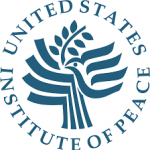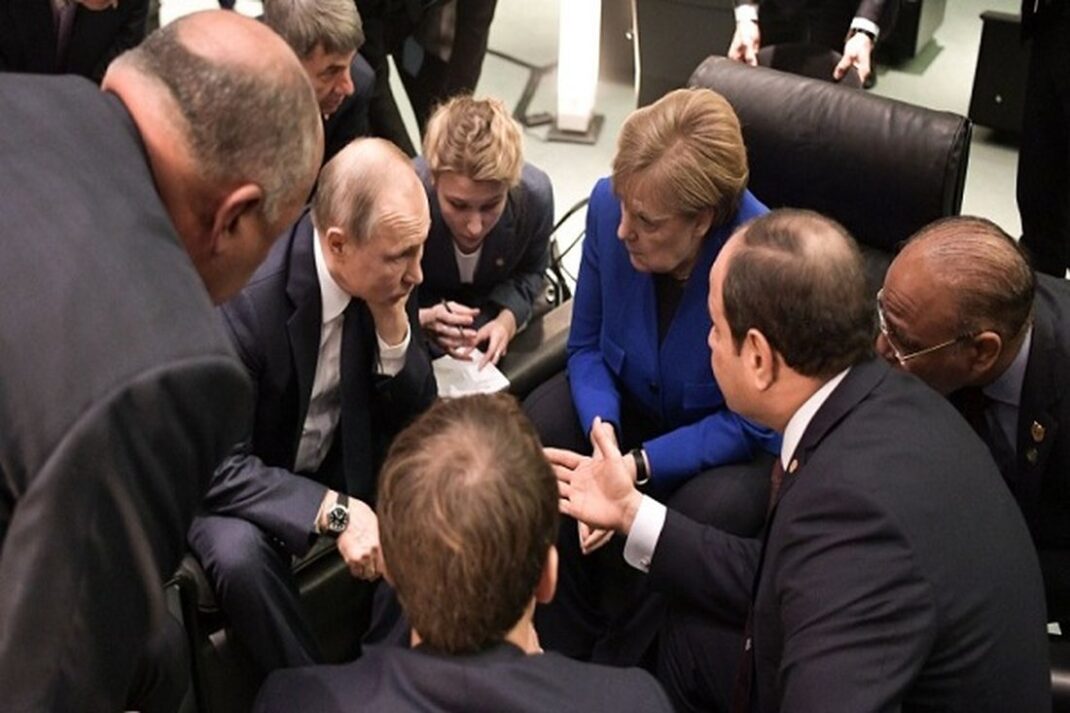By Thomas M. Hill & Nate Wilson

 With little regard for Libya’s people, Turkey and Russia look to advance their respective interests.
With little regard for Libya’s people, Turkey and Russia look to advance their respective interests.
Libyan strongman Khalifa Haftar over a year ago launched his offensive to seize Libya’s capital, Tripoli, from the internationally recognized Government of National Accord (GNA).
The battle for Tripoli had been at a stalemate for months until late May when hundreds of Russian military contractors, supporting Haftar’s Libya Arab Armed Forces (LAAF), retreated from fighting on the frontlines.
The role of outside powers continues to drive Libya’s conflict, with Turkey, Egypt, the UAE, and Russia all heavily involved. Just yesterday, the U.N. mission in Libya said that the two sides agreed to resume cease-fire talks but did not say when these renewed talks would start.
USIP’s Thomas Hill and Nate Wilson look at what led to Russia’s retreat, why efforts to curtail foreign involvement through arms embargoes have failed, and what impact COVID-19 has had on Libya’s conflict.
What has turned the tide against the LAAF in recent weeks?
Hill: Increased Turkish support to the GNA and its affiliated militias has significantly changed the balance of power on the battlefield. For almost a year, Haftar and his LAAF made slow incremental progress toward capturing Tripoli.
The Turkish decision to provide additional advanced military equipment, including drones, neutralized the air superiority the LAAF previously held. This allowed GNA ground forces to advance and retake strategic outposts in the west and south of Tripoli.
The LAAF’s external patrons—principally the UAE, Egypt, and Russia—have not increased their support on par with what Ankara has provided. There are reports that the Russians sent at least a dozen fighter jets to the LAAF but those planes remain grounded and have not been deployed.
What does the Russian retreat mean for the Libyan conflict at large? Could Haftar be more likely to seek a political resolution?
Hill: It does not appear that the Russians are withdrawing but rather repositioning. They have withdrawn from several forward positions and are adopting a defensive posture to protect the LAAF’s strategic hold on the city of Tarhouna.
Many believe that the Russians are digging in around Tarhouna and will not allow GNA forces to move eastwards. In order to exact concessions from the Turks in Syria, the Russians may raise the costs of intervention in Libya.
Both the Russians and Turks have signaled that they view the Libyan conflict as an opportunity to create leverage against the other in Syria, a more important strategic location for both Turkey and Russia.
Haftar is, and always has been, a tool in a much larger game being played by regional hegemons. That being said, Haftar has clear political ambitions to control all of Libya.
Anything less than complete military victory would be unacceptable to Haftar and probably his supporters as well; political compromise seems unlikely if not impossible.
What is the U.S. position on Russia’s role in Libya?
Wilson: The Pentagon’s confirmation of Russia’s further military incursion into Libya signals American discontent at the strategic level with the United States’ own lack of engagement in Libya.
This warning is significant because it could generate more interest in Libya from U.S. policymakers, but it will have to compete with other hotspots, the domestic COVID-19 response, American politics in an election year, and now the protests erupting across the nation.
However, without more American attention, Libya could become a Russian foothold on the land that acts as Europe’s southern border.
Even without this staging area, the U.S. regards Russian interference in Libya’s affairs as unwelcome. Russia has supported divisive Libyan moves for a long time, including printing currency for the eastern interim government.
These have undermined U.S. interests in stability and unification of national institutions. More broadly, the U.S. and Russia are competing for influence in the region, so further Russian investments in Libya present potential challenges to American interests.
While many maritime rescue groups have suspended operations due to COVID-19, there has been a reported increase in migrants attempting to leave Libya for Europe.
What’s driving this increase, and what are the humanitarian implications?
Hill: Irregular migration into Europe, through the central Mediterranean route, is not new. The increasing numbers of migrants reflect both opportunity (the ability to get to Europe) and need (the instability or threat to livelihood at the point of origin).
The maritime flotilla that was deterring irregular migration across the Mediterranean has been suspended, creating new opportunities for irregular migrants to transit through Libya.
The “push factors” have remained constant. Irregular migrants continue to face hardships while in transit through Libya; the GNA has closed many of the migrant facilities and the International Organization for Migration has been accused of forced repatriations.
We have also seen the LAAF seem to deliberately target migrant detention facilities, subjecting migrants to additional levels of violence and depravation.
Why have arms embargos failed to stem the flow of arms and mercenaries into Libya, and has the new European Union mission launched in March had any effect?
Hill: U.N. arms embargoes have been totally ineffective. External actors have continued to supply financial and military support in contravention of U.N. embargoes and the threat of sanctions to both the LNA and LAAF.
Libya provides an opportunity for regional powers—as well as burgeoning global powers—to engage militarily and “settle scores.” Each external actor involved in the Libyan conflict is trying to advance narrow self-interests; often these interests overlap but they are not aligned or even coordinated.
The U.N. is not empowered to take punitive action against those that violate arms embargoes and U.N. member states are unwilling to hold themselves accountable. As a result, rhetorical support for arms embargoes remain cosmetic and ineffective.
Wilson: The EU arms embargo has been and will be ineffective. It is focused on one part of the country and the majority of arms arrive via air, a means of transport the embargo is not equipped to halt.
It is a bad time for Europeans to attempt this mission, especially as they have been battling COVID-19 within the EU’s borders.
Amid all the focus on the East versus West battle, what about Libya’s South?
Wilson: Libya’s South, the Fezzan, is a hotspot that observers should keep their eyes on. When violence at the national level escalates, or political fault lines shift, the South tends to become a battlefield.
Local Fezzan groups vie for influence with national authorities who in turn court them for access, information, and support. A renewed conflict in Fezzan would be a disaster in a place where new COVID-19 cases were found last week.
A potential mitigating factor, ironically, could be the virus itself. Since authorities have instituted renewed lockdowns, it may be more difficult for tensions to escalate to a point where fighting breaks out.
At the same time, it is crucial that peacebuilding organizations use the window of opportunity to further deescalate and prevent conflict.
How has COVID impacted Libya’s conflict and the country more broadly?
Wilson: The parties in the ongoing conflict have used COVID as a cover: a cover for importing additional military supplies, a cover for increasing divides between regions, a cover for rejecting compromise.
Rather than seeing it as an opportunity to make amends or cooperate, they cynically saw that international attention was elsewhere and that pressure to make peace would decrease.
Additional military supplies came into the country and both sides made no attempts to abide by U.N. calls for global cease-fire or come to the negotiating table.
At the same time, there have been pockets of cooperation between groups that normally not keen to work together. These should definitely be highlighted as Libya moves forward.
However, while the virus has not yet had a devastating impact on the country, the people will be the ones who suffer. And this will be in part due to the fact that Libya has not been able to build up its health infrastructure because of the conflict—it takes resources, attention, and lives.
Without an end to the conflict, Libyans will not be able to adequately respond if it gets worse or take preventive measures for the future.
***
Thomas Hill is the senior program officer for North Africa at USIP. He most recently served as a visiting fellow at the Brookings Institution where his research focused on reforming civilian U.S. foreign policy agencies.
Nate Wilson joined USIP after stints with the Partnership for Global Security in Washington, and at the Mossawa Center in Haifa, Israel. Nate has also undertaken Arabic-to-English translation work and research for the National Consortium for the Study of Terrorism and the Reponses to Terrorism (START) at the University of Maryland-College Park, as well as the Brookings Institute.
________________





